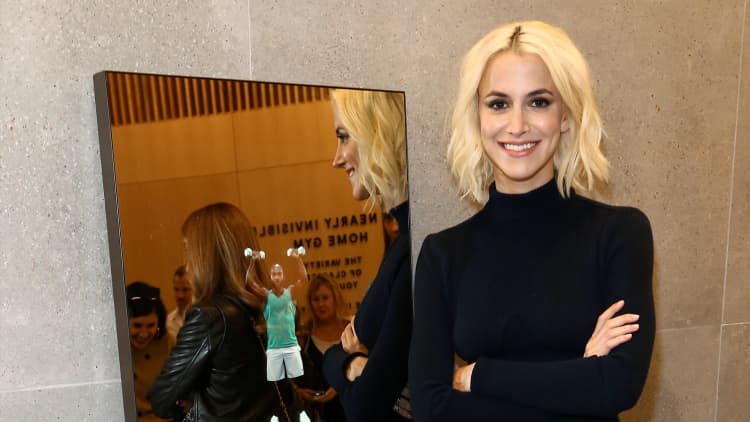I've never been one to sit still. One reason I love my job as CNBC's Senior Media & Tech Reporter so much — and I've been at CNBC for 16.5 years — is that the job moves fast. I find it thrilling to race between reporting breaking news, interviews, phone calls with sources and brainstorming sessions with my colleagues.
But even my colleagues, who jokingly call me Hurricane Julia because I'm such a whirlwind in the office, were surprised that I was able to carve out the quiet time to report and write my new book, "When Women Lead", while working as a CNBC reporter and raising two boys — during the pandemic.
Here are my top five tips for being super productive:
Use your passion to stop procrastinating
After six years as a magazine writer I knew firsthand that the time it takes to write something will expand to meet the time allowed and that it's easy to piddle away an afternoon getting tea and rearranging my desk. But my career in the fast-paced world of TV meant I also knew that I could focus and write incredibly quickly.
I was so passionate about the topic of female leadership and was so determined to write this book, that whenever I found myself looking for snacks in my kitchen or scrolling through Instagram, I would try to catch myself, remind myself how important this was to me, and push myself to get to work. That often meant throwing my phone across the room (to safely land on the bed) or disconnecting my computer from Wi-Fi to keep myself moving forward.
Lay out your to-do list ahead of time
If I don't know exactly what I'm supposed to be doing first I can easily waste an hour catching up on emails and articles even though they're not my top priority. I found that if at the end of every day I made a list of the things I wanted to accomplish next for my book, then I could be far more effective.
If I had a two-hour window after putting my kids to bed, I could immediately get to work on those top priorities without getting sidetracked with other, less urgent tasks. I've also found that making that end-of-day list helps get me started thinking about those projects and makes them less daunting when I dive in, whether it's the next day or a few days later.
Carve out time when you work the best — and can be undistracted
Everyone has a time of day when they feel like their brain is firing and their creative juices are flowing — for me it's from around 6 a.m. until 10 a.m., fueled by a lot of coffee (I've been trained by early morning hours for CNBC). While I loved doing interviews and reviewing transcripts in the afternoons and evenings, I knew that if I had to do really creative writing my best work would come early.
So every weekend morning and day off I'd ask my husband to take care of the kids until noon and I'd use that roughly 6-hour chunk of time to write — uninterrupted. Listening to my body and brain about what type of work feels most efficient helps me make the most of my time.
For big projects, set lots of smaller deadlines
The idea of having over a year to write a book seemed overwhelming — so much to do over such a long time. So I broke it down: I set deadlines of when I would deliver a few chapters at a time to my editor. I both wanted to keep myself on track so I didn't have to rush at the end, and also wanted to get feedback, to make sure that I was not wasting my time, and taking the wrong approach with my storytelling.
Once I knew I had a certain amount of time to write a chapter, I could give myself more specific assignments of how much and what I should write on say, a week off work at CNBC or a weekend when my kids were off with my husband or parents. My schedule ended up changing as I needed more time for one chapter or less for another, but having that framework made it feel more manageable.
When you get stuck, talk it out or walk it out
When writing "When Women Lead" every once in a while I would get stuck trying to articulate a complex idea or figure out how to illustrate the findings of a study with an example in a leader's story. What I found most effective is just talking the complicated stuff through — not just with my editor, but also with my husband or even my kids (I knew if I could hold the attention of a now 8- and 11-year-old then it must be interesting).
I often find the process of trying to explain something complicated to an unfamiliar audience — and fielding questions about it — helps me better figure out how to tackle it. I also find that solutions to the toughest questions often come when I'm on a walk or run, or in the shower. Totally clearing my mind from the stress and pressure of needing to find a solution opens me up to new ideas when I least expect them.
Check out:
I talked to over 100 women leaders—the top 3 things I learned about what makes them successful
Working moms get 58 cents for every dollar dads earn—and the pandemic has made the pay gap worse



